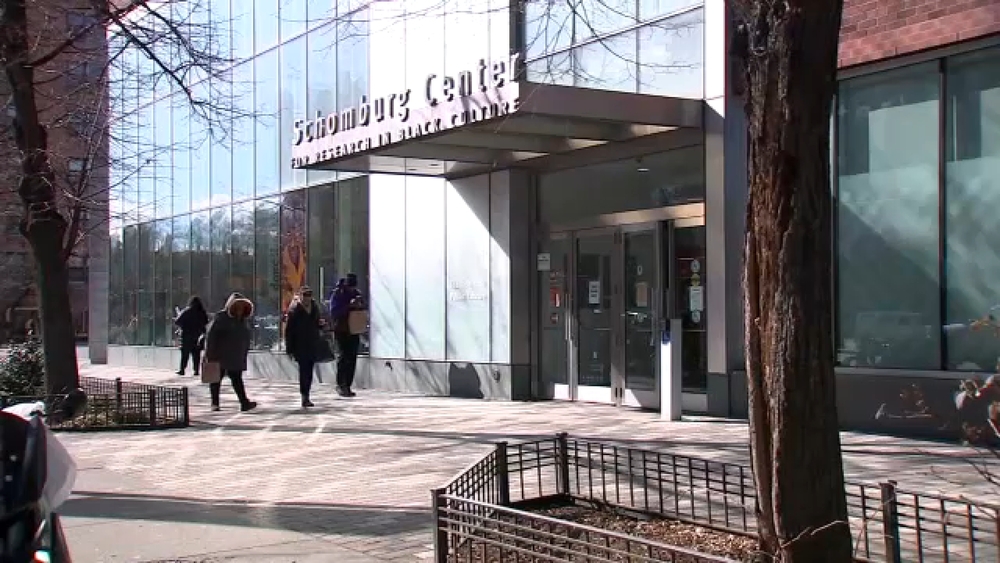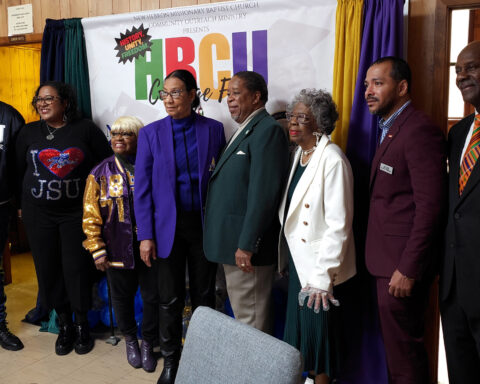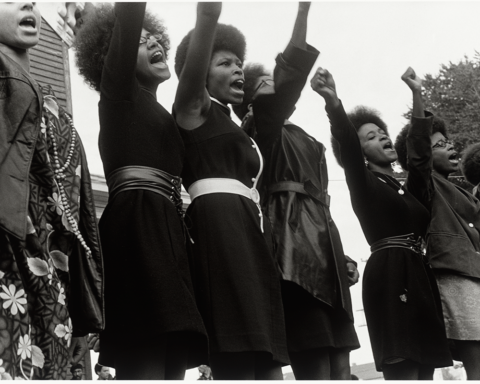By Jessi Mitchell
As we celebrate Black History Month, one institute in Harlem is dedicated to the achievements of African-Americans every day of the year.
The Schomburg Center for Research in Black Culture is marking its 100th year with a new generation of librarians to preserve more than 11 million items in the archive.
“It takes money, it takes people, it takes historical understanding,” said Anika Paris, an archivist who keeps watch over albums and video clips in the Moving Image and Recorded Sound Division.
“Everybody thinks that everything is just like available via Google,” Paris continued. “There’s a lot of stuff that we’re encountering that does not have much of a record beyond these walls.”
History of the Schomburg Center
Namesake Arturo Schomburg and Catherine Latimer, the first Black woman hired by the New York Public Library, started the research institute together 100 years ago with their team during the Harlem Renaissance, turning the 135th Street branch into the global resource it is today, with staff painstakingly digitizing documents for anyone to access.
“Black history is being made here every single day”
“Getting her start at the Schomburg makes way for Black and brown women who get their start at the Schomburg and then go on to do amazing things in the field of library work,” added Kassidi Jones, the Schomburg Center’s assistant curator for manuscripts, archives and rare books.
Jones joined her division four months ago, carrying forward the work of predecessors like Latimer.
“Black history is being made here every single day,” Jones said, “and the fact that I get to contribute just by doing something I already love, which is tending to Black books and Black history and Black culture, that’s really special.”
Jones and her colleagues will continue caring for this collection for the community for the next century and beyond.
The Schomburg Center for Research in Black Culture will be hosting a full schedule of events throughout the year to continue its centennial celebration.





